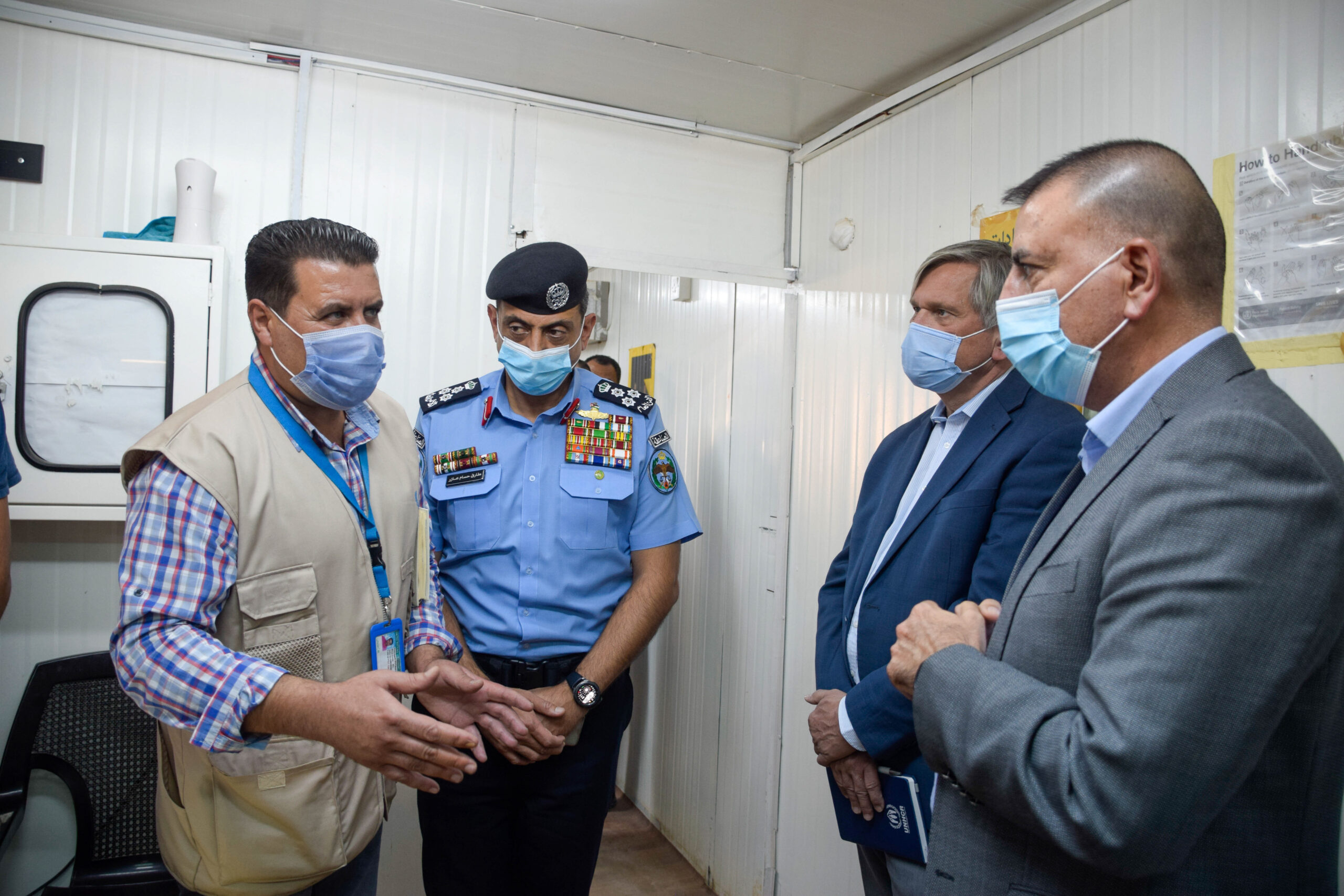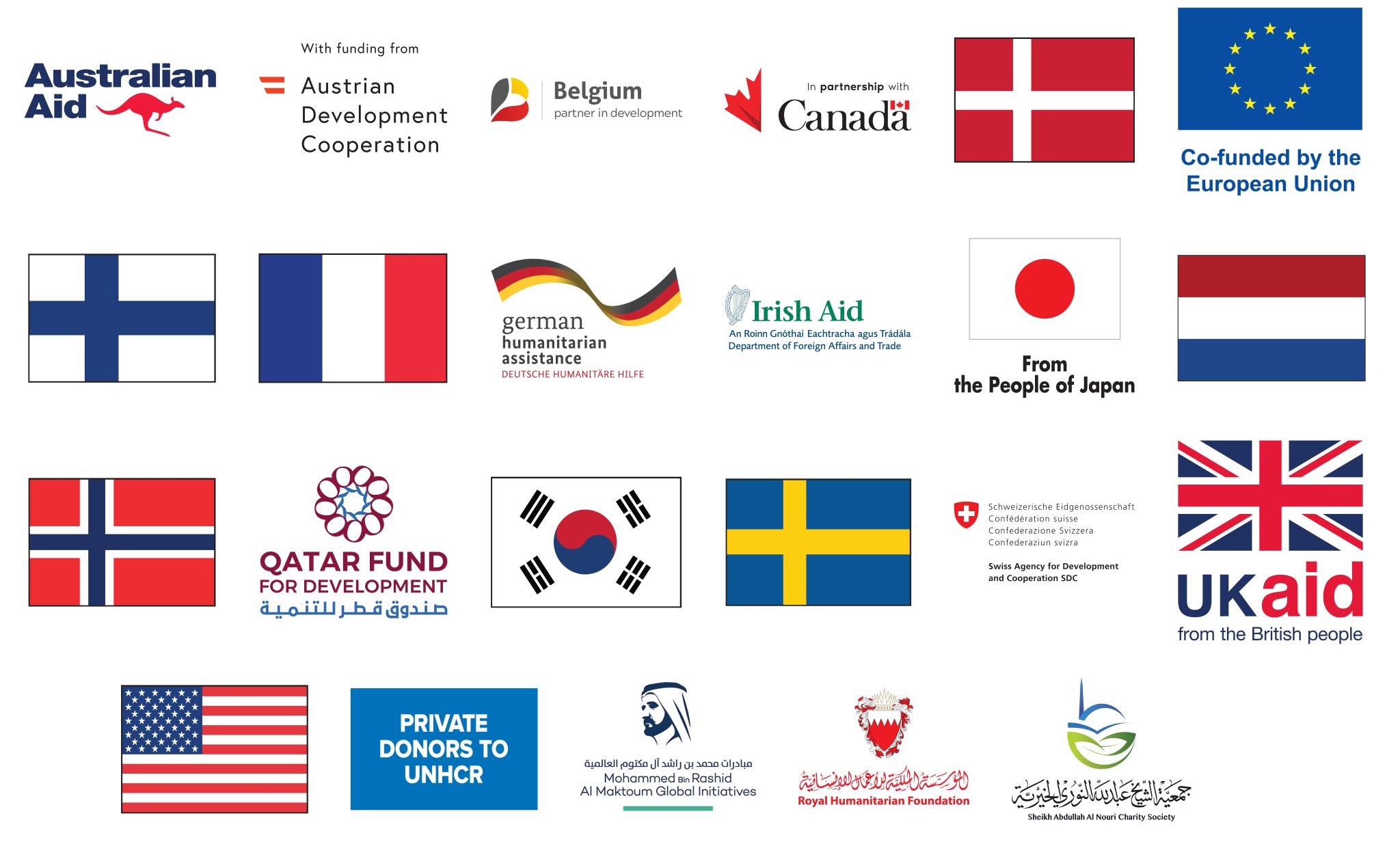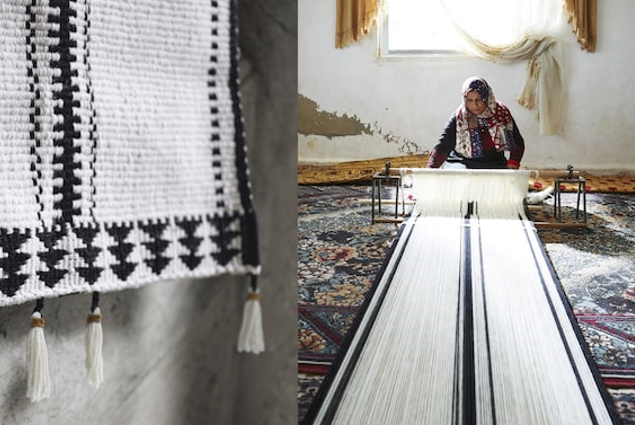Government of Jordan
Since 2015, the Jordan Response Plan (JRP) has been the main mechanism through which the Government of Jordan has jointly coordinated the international response to the Syrian refugee crisis. In June 2020, the Government of Jordan endorsed the JRP 2020-2022, totaling $6.6 billion. In March 2021, the 2021 component of the JRP was revised to incorporate $260 million for COVID-19 response, which addresses both the interventions and the needs required to mitigate the vulnerabilities resulting from the pandemic on Syrian refugees and host communities impacted by the Syrian crisis. The JRP aligns all sectors with the Sustainable Development Goals and the Global Compact on Refugees.
UNHCR works closely with several government entities to support the refugee response in Jordan, including the Ministries of Interior, Planning and International Cooperation, Foreign Affairs, Labour, Education, Higher Education, Health, Justice, and Social Development.
UNHCR also works closely with the Syrian Refugee Affairs Directorate (SRAD) – part of the General Security Directorate and responsible for the security and regulatory issues of Syrian refugees in Jordan including the co-management and coordination of Zaatari and Azraq camps – to ensure that assistance is provided in the most effective and efficient way possible in accordance with international humanitarian standards and protection principles.

Interagency Coordination
The Regional Refugee & Resilience Plan (3RP) -Jordan is coordinated by UNHCR, in line with the Refugee Coordination Model, which is applied and manifested in the Inter Sector Working Group (ISWG), chaired by UNHCR. The seven sectors of the response are divided into working and sub-working groups, which are chaired and co-chaired by UNHCR and other partners and provide information, advice, and advocacy to high-level decision-making bodies in Jordan.

Health Sector: UNHCR, WHO (co-chair)
Sexual and Reproductive Health Sub-sector: UNFPA; Nutrition Sub-sector: UNICEF, WFP, UNHCR (co-chairs); Mental Health and Psycho-Social Support (MHPSS) Sub-sector: International Medical Corps, WHO (co-chair)
Protection Sector: UNHCR, National Council for Family Affairs (co-chair)
Child Protection Sub-sector: UNHCR, UNICEF (co-chair); Gender-Based Violence Sub-sector: UNHCR, UNFPA (co-chair); Disability & Age Sub-sector: UNHCR, MEDAIR (co-chair)
Food Security & Basic Needs Sector: WFP, UNHCR, IOM, Tkiyet Um Ali (co-chairs)
Shelter Sector: UNHCR, International Orthodox Christian Charities (co-chair)
Economic Empowerment Sector: UNHCR, Care Jordan (co-chair)
WASH Sector: UNICEF, Action contre la Faim (co-chair)
Education Sector: UNICEF, Norwegian Refugee Council, Relief International (co-chairs)
An Assessment, Analysis, and Learning (AAL), established in 2023, is an interdisciplinary, collaborative learning platform that aims to provide strategic and technical guidance for the Syria response and organizations that support vulnerable communities in Jordan. The AAL Hub is co-chaired by UNHCR & UNICEF.
UNHCR works closely with several national and international partners, including NGOs and UN agencies, to provide better services to refugees and asylum seekers in Jordan in need of protection and assistance.
Donors
UNHCR’s response needs in Jordan for 2024 are $374.8 million. UNHCR is grateful for the critical support provided by governmental and private sector donors who contribute to this operation, as well as those who have contributed to UNHCR programs with unearmarked and broadly earmarked funds.


Civil Society
The Jordan Civil Society Network for Displacement (CSND) is a collaboration platform for civil society actors to jointly develop strategies for the protection and support of refugees and host communities in Jordan. As a sub-section of the MENA CSND, the Jordan CSND is composed of 23 members including local NGOs, academic and faith-based organisations, think tanks, research centres, artists and cultural influencers and private sector actors, with a shared commitment to contribute to the protection, resilience and development of displaced persons and host communities.
In line with the Global Compact for Refugees and “whole of society” approach championed by the organisation globally, UNHCR supports various CSND projects, while also serves as a catalyst and convener for the platform, facilitating the participation of network members in regional and global processes on refugee protection to provide opportunities for new voices to be heard.
In December 2023, the Network submitted a pledge for the Global Refugee Forum focusing on enhancing self-reliance of refugees and host communities and and published the Advocacy Paper on dignified livelihoods opportunities for refugees and Jordanians.
